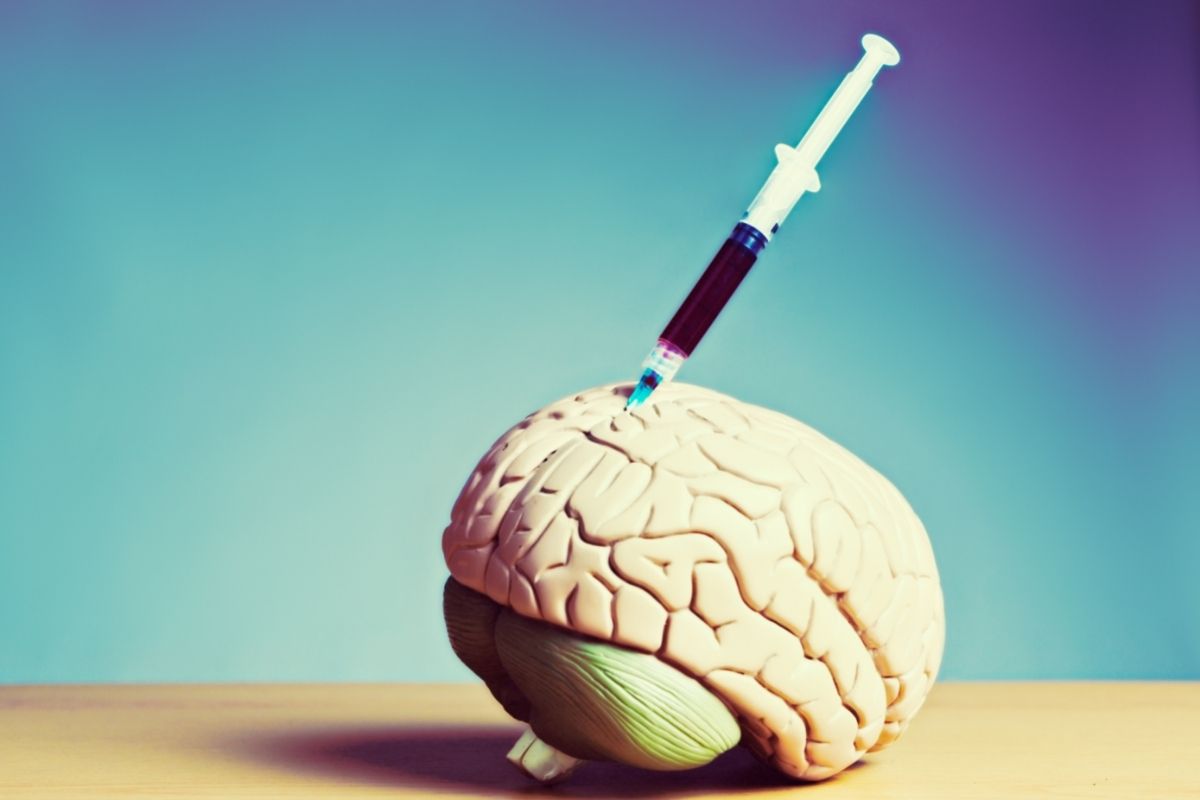What Part Of The Brain Causes Anxiety?

Anxiety is like a sneaky monster that creeps into your life, turning everyday situations into daunting challenges.
Did you know that anxiety disorders affect a whopping 40 million adults in the US alone? That’s about 18% of the population!
Imagine your brain as a busy kitchen, with chefs (neurons) cooking up all sorts of dishes (thoughts and feelings).
Sometimes, the fire alarm (anxiety) goes off for no good reason, throwing everything into chaos.
But don’t worry! I’ve been in that chaotic kitchen, and I’m here to share some secret recipes to turn down the heat.
Buckle up, because we’re about to dive into the fascinating world of your brain on anxiety.
By the end of this article, you’ll have the tools to tame that pesky alarm and get your mental kitchen running smoothly again.
Your Brain: The Master Chef of Emotions
Picture your brain as a fancy restaurant with billions of tiny chefs (neurons) whipping up your thoughts and feelings.
These chefs communicate using special signals, like secret ingredients passed from one station to another.
Each part of your brain has its own specialty dish:
The visual cortex handles all things sight-related, while the temporal lobes are in charge of memory marinades.
But here’s where it gets interesting: there’s a special section called the limbic system that’s all about cooking up emotions.
In this emotional kitchen, the amygdala is like the head chef, deciding how you should feel about different situations.
When the amygdala yells “Fire!”, your body goes into panic mode, releasing stress hormones faster than you can say “medium rare”.
The hormones that are responsible for feelings of anxiety (and linked feelings, such as stress) come from your adrenal glands, and are called adrenaline and cortisol.
The Anxiety Recipe: How Your Brain Cooks Up Worry
Ever wondered why your palms get sweaty before a big presentation?
Or why your heart races when you’re stuck in traffic?
It’s all thanks to your brain’s anxiety recipe.
Scientists have been peeking into the brains of folks with anxiety, and guess what?
Their brains look different from those without anxiety.
It’s like comparing a calm, organized kitchen to one where all the pots are boiling over.
Here’s what they’ve found:
- Some parts of the brain are working overtime, like a chef with too many orders
- Other parts, especially those in charge of staying cool, are taking a coffee break
- The different sections of the brain aren’t communicating well, like a kitchen with bad walkie-talkies
This kitchen chaos is what leads to those uncomfortable feelings of anxiety.
There’s no doubt that your brain plays a role in causing anxiety. However, scientists don’t know exactly how it works.
Anxiety’s Secret Ingredients: How It Changes Your Brain
1. **Hormone Overload**: Anxiety floods your brain with stress hormones like it’s preparing for a food fight.
In a normal brain, these hormones disappear once the “threat” is gone.
But in an anxious brain, it’s like the hormone tap is stuck on “full blast”.
2. **Supersized Threat Detector**: Your amygdala (remember, the emotion chef?) can actually grow bigger with constant anxiety.
It’s like upgrading from a home kitchen to a restaurant-sized one, but for worrying.
This makes your brain extra sensitive to potential threats.
3. **Negative Memory Hoarder**: Anxiety can shrink your hippocampus (the memory cook), making it harder to remember things.
But here’s the kicker: your brain starts prioritizing negative memories over positive ones.
It’s like keeping a collection of burnt dishes while forgetting all the delicious meals you’ve made.
Constant feelings of anxiety can cause the amygdala to grow bigger, making it signal for threats far more frequently.
Turning Down the Heat: Managing Your Anxiety

Now that we know what’s cooking in an anxious brain, let’s talk about how to cool things down.
Here are some tried-and-true recipes for managing anxiety:
1. **Deep Breathing**: It’s like hitting the pause button on your anxiety.
Take a few deep breaths throughout the day.
It’s amazing how something so simple can be so powerful!
2. **Exercise**: Get moving to release those feel-good endorphins.
It’s like adding a sprinkle of happiness to your emotional recipe.
3. **Healthy Eating**: Fuel your brain with nutritious foods.
Think of it as giving your inner chefs the best ingredients to work with.
4. **Sleep Well**: Don’t skimp on shut-eye!
A well-rested brain is better equipped to handle stress.
5. **Stay Busy**: Engage in activities you enjoy.
It’s like changing the channel in your brain from “Worry Network” to “Fun TV”.
6. **Talk It Out**: Share your feelings with friends, family, or a therapist.
Sometimes, just saying your worries out loud can make them less scary.
7. **Seek Help**: If these home remedies aren’t cutting it, don’t hesitate to talk to a doctor about medication options.
There’s no shame in getting extra help to manage your anxiety.
The Final Dish
Anxiety is like a complex recipe with many ingredients.
But with the right tools and techniques, you can become the master chef of your own mind.
Remember, you’re not alone in this kitchen of life.
Millions of people are cooking up similar dishes of worry and stress.
But here’s the exciting part: you have the power to change the menu.
With practice and patience, you can transform your mental kitchen from a stress-filled diner to a calm, gourmet restaurant.
So, who will benefit most from this brain-anxiety cookbook?
Anyone who’s ever felt overwhelmed by worry or stress.
Whether you’re a seasoned anxiety warrior or just starting to notice those nervous butterflies, these insights and tips can help you whip up a more peaceful state of mind.
Now, go forth and cook up some calm!
Your brain (and your taste buds) will thank you.

Author: Michelle Landeros, LMFT
Michelle Landeros is a Licensed Marriage Family Therapist (LMFT). She is passionate about helping individuals, couples and families thrive.





